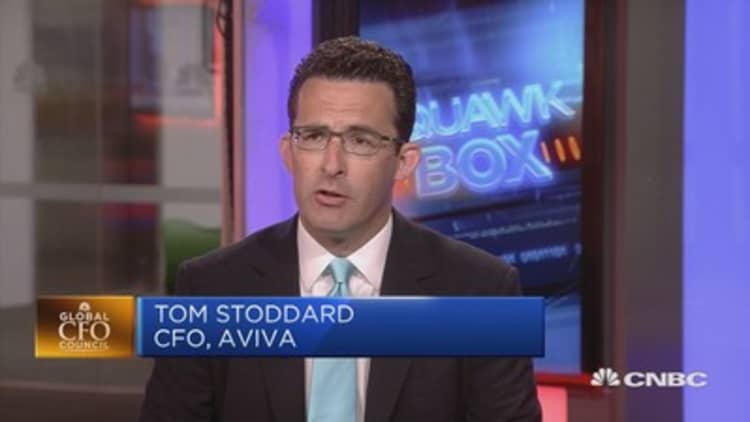
Artificial intelligence is not the future, it's the present.
More than a quarter, or 25.6 percent, of CFOs who responded to this quarter's CNBC Global CFO Council Survey say artificial intelligence and machine-learning technology is "critically important" to their businesses, while another 43.6 percent call it "very important." Only 2.6 percent say it is "not at all important."
The CNBC Global CFO Council represents some of the largest public and private companies in the world, collectively managing more than $4 trillion in market capitalization across a wide variety of sectors. The quarterly CFO Council poll was conducted from June 2–16.
Second to A.I. in "critical importance" is the Internet of Things. In many ways, the two technologies are interdependent, as the Internet of Things depends on software that can identify errors and self-correct. Eighteen percent of CFOs say IoT is "critical" to their business, while another 51 percent say it's "very important."
CFOs were least likely to say that blockchain was critically important or very important to their business. And 23.1 percent of CFOs say the technology behind virtual currencies, like bitcoin, is "not at all important." That suggests the technology, which some see as having wide-ranging applications for financial transactions beyond virtual currency, has yet to catch on among large corporations.
Cyber concerns
CFOs have become increasingly involved in decisions about technology and cybersecurity in recent years, a fact that unexpectedly stood out in this quarter's survey. A surprising 23.1 percent of the 39 CFOs who responded to this quarter's survey now see a cyberattack as the No. 1 external risk to their company — the highest number since we began asking this question.
Flexible work paradox
Earlier this year, IBM ended a decades-old flexible work policy for thousands of its employees, reportedly to improve collaboration and productivity. Critics said it would harm its ability to compete for talented workers against the likes of Google, Apple and others.
For CFOs it presents a conundrum. Two thirds of CFOs responding to our survey agree that flexible work options are essential for attracting and retaining talent, but at the same time, 82 percent say the best innovations happen when people work together in a shared physical space.
IBM's CFO is not a member of the CNBC Global CFO Council. However, Yahoo's CFO Ken Goldman is a member. Yahoo famously (or infamously) ended all remote work in 2013, soon after Marissa Mayer took over as CEO. Survey responses are anonymous, so it is unknown whether or not Goldman completed this quarter's survey.
Will other companies follow the lead of IBM or Yahoo? For now it seems CFOs and their CEO bosses will live with the paradox. Only 15.4 percent of respondents say their company is even considering a limit on telecommuting.






